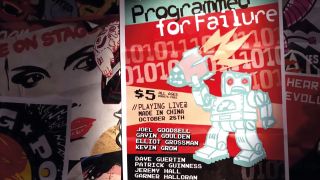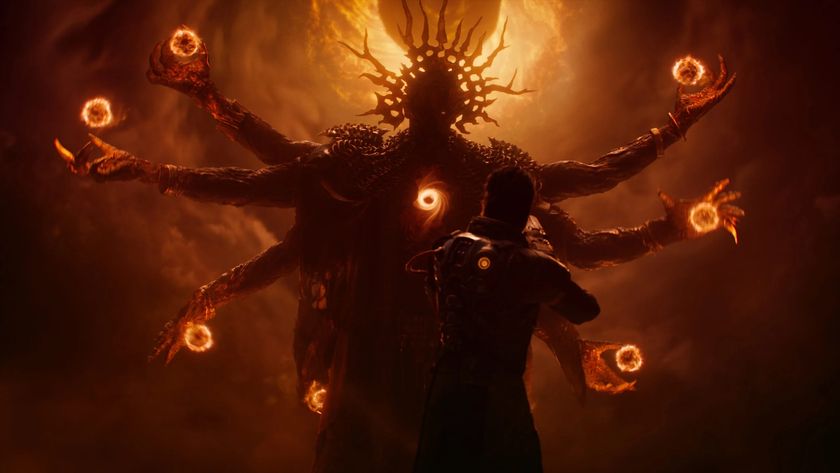Opinion: "Why should games demand my attention for their dull credits?"
As I understand it, video games don’t just sprout out of the ground like potatoes. They’re the products of creators. Creators who play god. And just like God, vengeful and strong, they demand attention. The thing is, often I don’t feel like giving it to them. Why? Because acknowledging things sucks. The game’s complexity doesn’t matter – whether it’s a three-person project or the result of a global team working with such miraculous co-ordination it would make the Pyramids of Giza look like a rushed school project – if the start or end credits are boring, I’ll try to skip them. My solution: better credits.
I remember finishing Fable back in 2004. At the time this was one of the most ambitious games ever made, so you’d reasonably expect the credits to be a bit long. I’m far from reasonable, however, and after precisely 30 seconds of watching an assortment of very British names crawl up the screen I not only started to tire, I started to actively despise everyone at Lionhead. How dare they give me 30 solid hours of entertainment and then have the gall to ask for recognition?! How dare they?

Credits can be so much more. They essentially exist to momentarily shine a spotlight on the hard-working people who made it all possible. They’re nods, citations, expressions of gratitude – who said this needs to be made against a black void in the form of random names slowly rising up and disappearing forever? Sunset Overdrive is a perfect example of how to do end credits right, spilling its heady spirit into hyper-coloured band posters bearing the developers’ names. White Night prepares players for its noir stylings with a twilight drive while headlights illuminate a procession of roadside billboards plastered with the team’s roles and titles. In both cases, the beginning and end can nurture the game’s tone rather than nullify it.
And, unlike in film or TV, game credits can be interactive. Rayman Legends has you smashing through chunky blocks of names and collecting Lums like you do in the game proper; in Beautiful Katamari, you roll your sphere of stuff through the cosmos, hoovering up comets and winged turtles and land masses; Vanquish gives you a laser cannon to blast the faces of developers stuck onto asteroids. These innovative credits inject meaning into a traditionally one-sided relationship, a ‘you’ve had your fun; now sit and watch this’. Both player and developer matter here.

Some games use music to hold your attention. Going back a bit, Guitar Hero: World Tour’s credits featured Ozzy Osbourne, Zakk Wylde, and Travis Barker belting out Pull Me Under by Dream Theater as they soar among the clouds in a pirate ship pulled by Griffins. Gears of War’s another, with its custom rap track performed by Lester Speight, in-character as Cole Train. And who can forget the catchy jingles of Portal and Plants vs Zombies? Other studios use video. Lionhead makes amends for Fable’s ending with The Movies’ characterful montage in which the team displays its acting prowess in a series of comedic vignettes. Not only are the sequences entertaining, but they capture the culture of the studio better than words ever could.
From a developer’s point of view I understand why, after the crunch, you don’t want to spend more time away from pets and loved ones directing some niche credits most people won’t even see. Still, they’re a great opportunity to establish or continue themes, to grab the player with music and video, to even let them participate. So come on, videogames. Don’t bore us with the black screen. Do something clever, or I’ll go and make a cup of tea instead.
Click here for more excellent Official Xbox Magazine articles. Or maybe you want to take advantage of some great offers on magazine subscriptions? You can find them here.
Sign up to the 12DOVE Newsletter
Weekly digests, tales from the communities you love, and more
Most Popular







